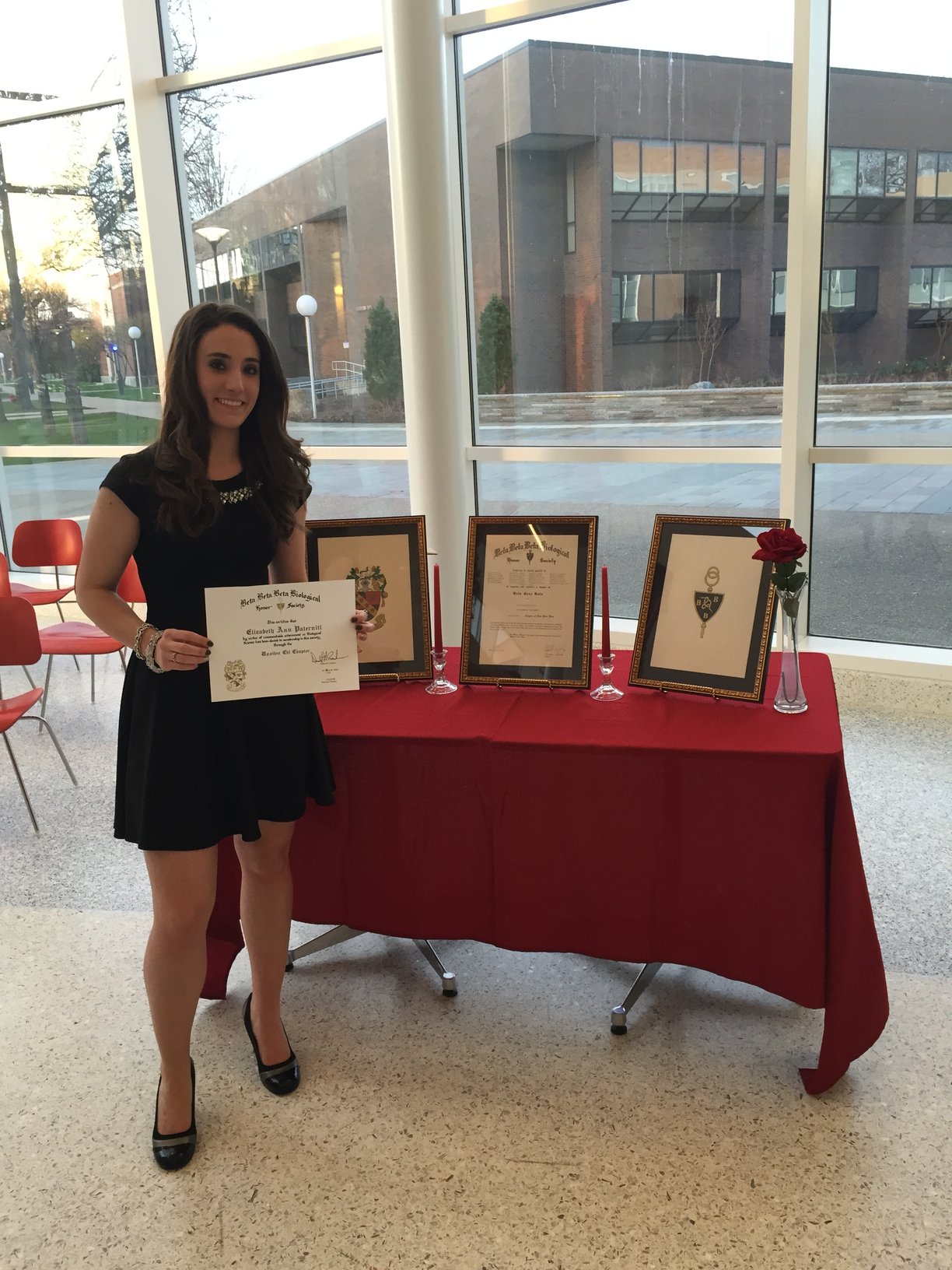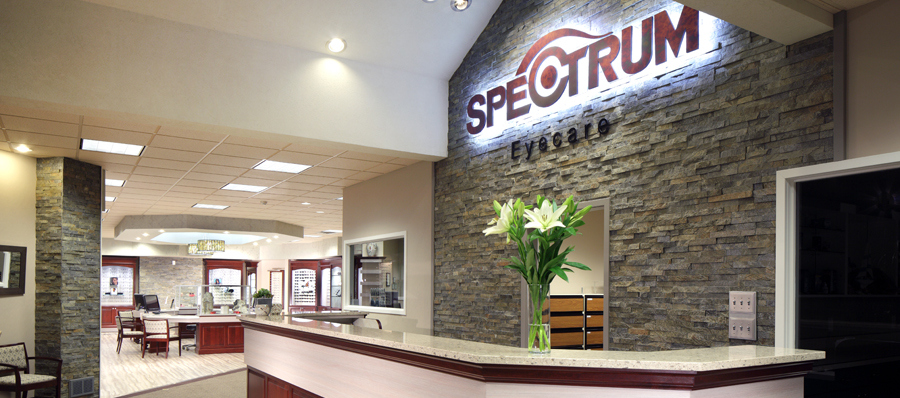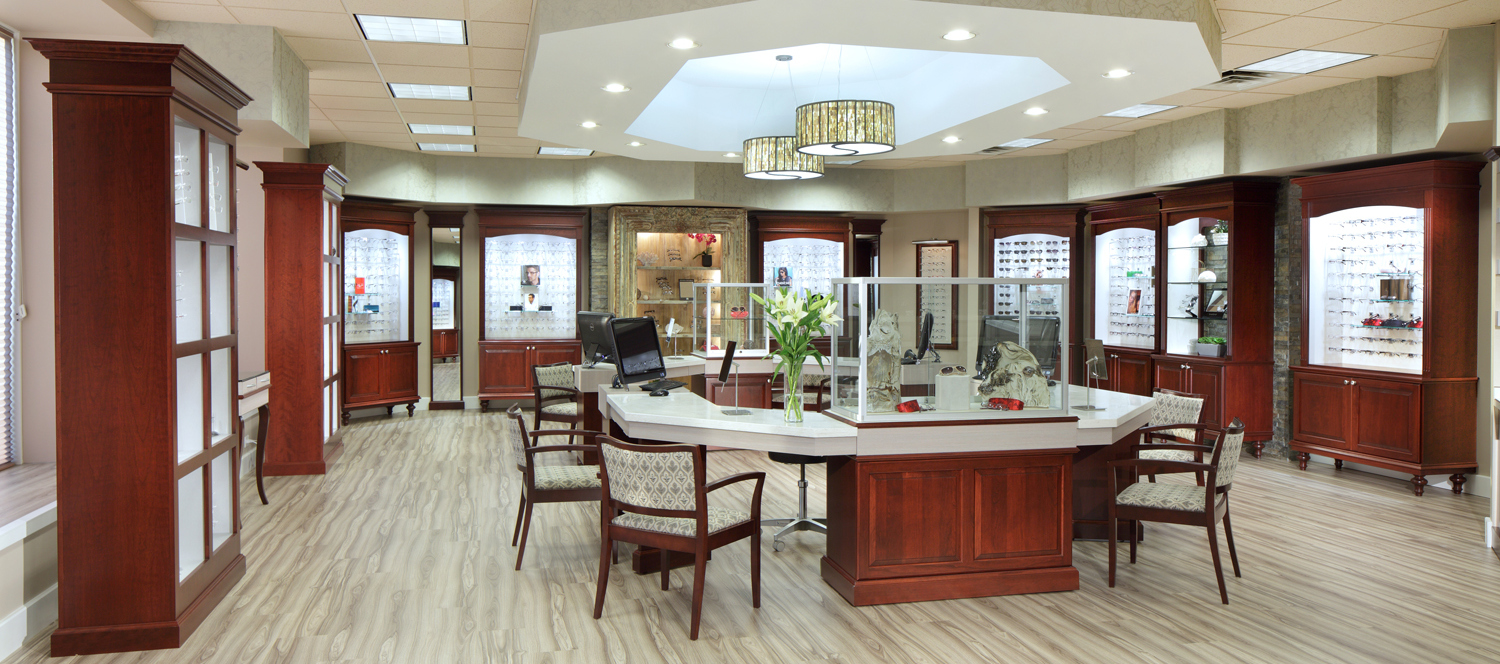
Elizabeth Paterniti's Internship Testimonial
 Every year, millions of people in the United States lose some degree of independence due to vision loss. Twenty-two million have cataracts, 2.3 million suffer from glaucoma, 2 million have advanced age-related macular degeneration, 4.4 million have been diagnosed with diabetic retinopathy and more than 1 million are legally blind. A variety of new technologies are making earlier diagnosis of ocular disease possible, which in turn can lead to earlier and more effective treatment. Two such diagnostic technologies are the Time Domain Optical Coherence Tomography (TD-OCT), and the Spectral Domain Optical Coherence Tomography (SD-OCT). SD-OCT is a more effective diagnostic procedure but it is also more expensive. The goal of my capstone internship project was to assess the cost effectiveness of the TD-OCT currently used at Spectrum Care in Jamestown, NY, and compare this to a projected cost of the SD-OCT. Results indicate the SD-OCT would be cost-effective for Spectrum Care.
Every year, millions of people in the United States lose some degree of independence due to vision loss. Twenty-two million have cataracts, 2.3 million suffer from glaucoma, 2 million have advanced age-related macular degeneration, 4.4 million have been diagnosed with diabetic retinopathy and more than 1 million are legally blind. A variety of new technologies are making earlier diagnosis of ocular disease possible, which in turn can lead to earlier and more effective treatment. Two such diagnostic technologies are the Time Domain Optical Coherence Tomography (TD-OCT), and the Spectral Domain Optical Coherence Tomography (SD-OCT). SD-OCT is a more effective diagnostic procedure but it is also more expensive. The goal of my capstone internship project was to assess the cost effectiveness of the TD-OCT currently used at Spectrum Care in Jamestown, NY, and compare this to a projected cost of the SD-OCT. Results indicate the SD-OCT would be cost-effective for Spectrum Care.
My journey began in Jewett Hall with Dr. Lee in Health Care Professions. He suggested I job shadow at an optometry office to fully understand what one would do in the Optometry field. I soon learned this could full-fill my capstone project as well as give me some experience so I contacted Spectrum Eye care and worked with Dr. Henry Mole. When I arrived the first day he said “The office is your ocean, explore the ecosystems”. Right then I was excited that not only did I get to learn different techniques from each individual doctors but I got to work individually with each staff member to fully understand their position and how they contributed to the “ocean”.
I worked one on one with different doctors learning different techniques to comprehensive eye exams and pediatric  eye exams. I also worked with the contact lens department and worked with soft lens wearers, as well as advanced specialty fits for ocular disease. I had the opportunity to demonstrate my patience’s while working with others and helping them learn how to properly insert contacts. Working with the receptionist/patient services gave me the skills to organize, prioritize, properly answer phones and direct calls, as well as work with emergency calls such as pink eyes and floaters. I also worked with the frames and lens department, which adjusted glasses to one's face as well as helped them to find the perfect pair based on their face structure. The accounts and insurance department showed how the business world tied into the optometry field.
eye exams. I also worked with the contact lens department and worked with soft lens wearers, as well as advanced specialty fits for ocular disease. I had the opportunity to demonstrate my patience’s while working with others and helping them learn how to properly insert contacts. Working with the receptionist/patient services gave me the skills to organize, prioritize, properly answer phones and direct calls, as well as work with emergency calls such as pink eyes and floaters. I also worked with the frames and lens department, which adjusted glasses to one's face as well as helped them to find the perfect pair based on their face structure. The accounts and insurance department showed how the business world tied into the optometry field.
I worked individually with patients and technicians in order to fully understand the stages of ocular diseases as well as learn the basics to read the technology behind these machines. Ocular diseases include glaucoma, macular degeneration, and cataracts, each of these have the ability to cause serious effects to an individual’s vision. I learned to read the basics of corneal mapping, which is a non-invasive technique used in order to map the surface curvature of the cornea and the outer structure of the eye. Visual Field testing, glaucoma testing, and macular degeneration treatment were all procedures that I had the ability to explore. Digital retinal imaging allowed both the doctor and myself to detect diseases such as diabetes and macular degeneration.
Spectrum Eye Care’s Electronic Health Records were accessed to determine the Time Domain Optical Coherence  Tomography revenue and to determine if a Spectral Domain Optical Coherence Tomography was worth purchasing. It is evident that the Spectral Domain would pay for itself in a short period of time, and that the advanced technology within this machine would increase revenue, diagnoses, and business. Sales representatives were contacted and they also supported the idea of purchasing the SD-OCT. They encouraged Spectrum Eye Care to purchase this machine because of the advancement in technology and the high efficiencies of diagnosis. The SD-OCT would allow for quicker, more efficient diagnoses, and would allow for better monitoring of the diagnosis. Optometrist’s offices were also contacted and Dr. Babel reported that his office has a SD-OCT. Dr. Babel believes this advancement in technology has increased his revenue as well better supported patient diagnosis and monitoring of diseases. With the advancement of technology the Spectral Domain OCT is worth the purchase for Spectrum Eye Care’s staff.
Tomography revenue and to determine if a Spectral Domain Optical Coherence Tomography was worth purchasing. It is evident that the Spectral Domain would pay for itself in a short period of time, and that the advanced technology within this machine would increase revenue, diagnoses, and business. Sales representatives were contacted and they also supported the idea of purchasing the SD-OCT. They encouraged Spectrum Eye Care to purchase this machine because of the advancement in technology and the high efficiencies of diagnosis. The SD-OCT would allow for quicker, more efficient diagnoses, and would allow for better monitoring of the diagnosis. Optometrist’s offices were also contacted and Dr. Babel reported that his office has a SD-OCT. Dr. Babel believes this advancement in technology has increased his revenue as well better supported patient diagnosis and monitoring of diseases. With the advancement of technology the Spectral Domain OCT is worth the purchase for Spectrum Eye Care’s staff.
What I loved…
I was so lucky to have a staff that was willing to share their knowledge in every aspect of the field. I loved learning about the different diagnosis of the eye. I also enjoyed working with patients. Each day was different and I loved the variety of the office. This research was different from any research I had done in the lab. I got to work with patients as well as learn about the OCT machine and I read many articles to fully understand how these machines worked. I had the opportunity to use the machines and then talk to other offices about how they used the SD-OCT. This was more than research in a lab. It took hours of planning, research, organization, phone calls, visits to offices, counting data, using the health records, and excel sheets, but in the end when it was all pulled together the result of the time and effort put in the project was mind blowing. I couldn’t have been happier with the work I performed and the opportunity I was given from both Fredonia and Spectrum Eyecare. This opportunity opened my eyes to a whole new field of science. This isn’t a subject that is taught in a classroom; this is a real world experience.
What I learned….
Start early to plan for an internship, especially a capstone internship!! I made a few phone calls to the Spectrum Staff and they were more than willing to work with me, however not everyone will get that lucky. Contact the career development office if you need help, talk to your teachers for ideas, and take initiative by making your own phone calls.
Always have a good personality. Not only did I have the opportunity to work with the staff but also everyone patient that walked into the office asked about me when I was gone. It was amazing the impact someone could have on a patient just by being professional. The spectrum staff shows pride in their professionalism.
Care! Nobody will deny your help if you try/care. Ask questions, there are no dumb questions. Show you are interested in the topic and most of the time people are more willing to teach you or guide you in the correct direction. LEARN something new!
Elizabeth Paterniti
Biology major
